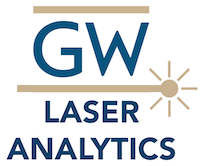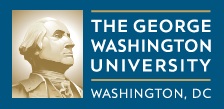Courses taught
(1997-2001, even years since) Chemistry 11: First semester of the General Chemistry sequence for science majors
(1992-1994) Chemistry 13: General Chemistry. One semester chemistry course for undergraduate students enrolled in School of Engineering and Applied Science.
(1985-2001, 2003) Chemistry 105: Environmental Chemistry. One semester course introducing basics of Chemistry and Physics of Environmental Problems. Clientele has included graduate students in environ¬mental science and policy programs as well as undergradu¬ates who are both chemistry and non-chemistry majors.
(1982-1991, 1996-1999, 2002-2003) Chemistry 111: Physical Chemistry. First semester of two-semester sequence in Physical Chemistry. Topic coverage includes thermodynamics, gas properties, mixtures and solutions, kinetic theory, transport properties, chemical kinetics, and reaction dynamics.
(1982-1994, 2000-2003, 2007-2010, 2012-) Chemistry 113: Physical Chemistry Laboratory. Two credit hour laboratory course in physical chemistry. Experimental emphasis on spectroscopic methods and thermodynamics. Developed computer simula¬tion experi¬ments of molecular diffusion and molecular dynamics simula¬tions.
(1982-1989) Chemistry 114: Instrumental Analysis Laboratory. Two credit hour laboratory course in instrumental analysis. Review and practice of modern instrumental methods including electrochemical, spectroscopic, etc.
(1982-2003) Chemistry 213: Chemical Thermodynamics. Graduate level course in thermodynamics including both classical and statistical treat¬ments.
(2001, 2004, 2008, 2010, 2013 ) Chemistry 218: Molecular Spectroscopy. Graduate level course in theory and techniques of molecular optical spectroscopies.
(1989, 1995) Chemistry 240: Combustion Chemistry. One credit hour special topics course in chemistry (and fluid mechanics) of combustion processes.
(2004) Chemistry 801: The Hydrogen Economy. First year Dean's Seminar course for freshmen exploring the promise of fuel cells through classroom and laboratory experiences.
(2009-2014) Honors 33,34: Science Proseminar. Course offered to select first year University Honors Program students on a variety of topics in modern science. My recent offerings have included the topics Climate Change, Energy Usage Past and Future, and Algae-based Biofuels.
Latest News
We are mostly moved into our new lab in the Science and Engineering Hall. After decades in the basement of Corcoran Hall we are excited about the prospects of occasionally seeing sunlight.


